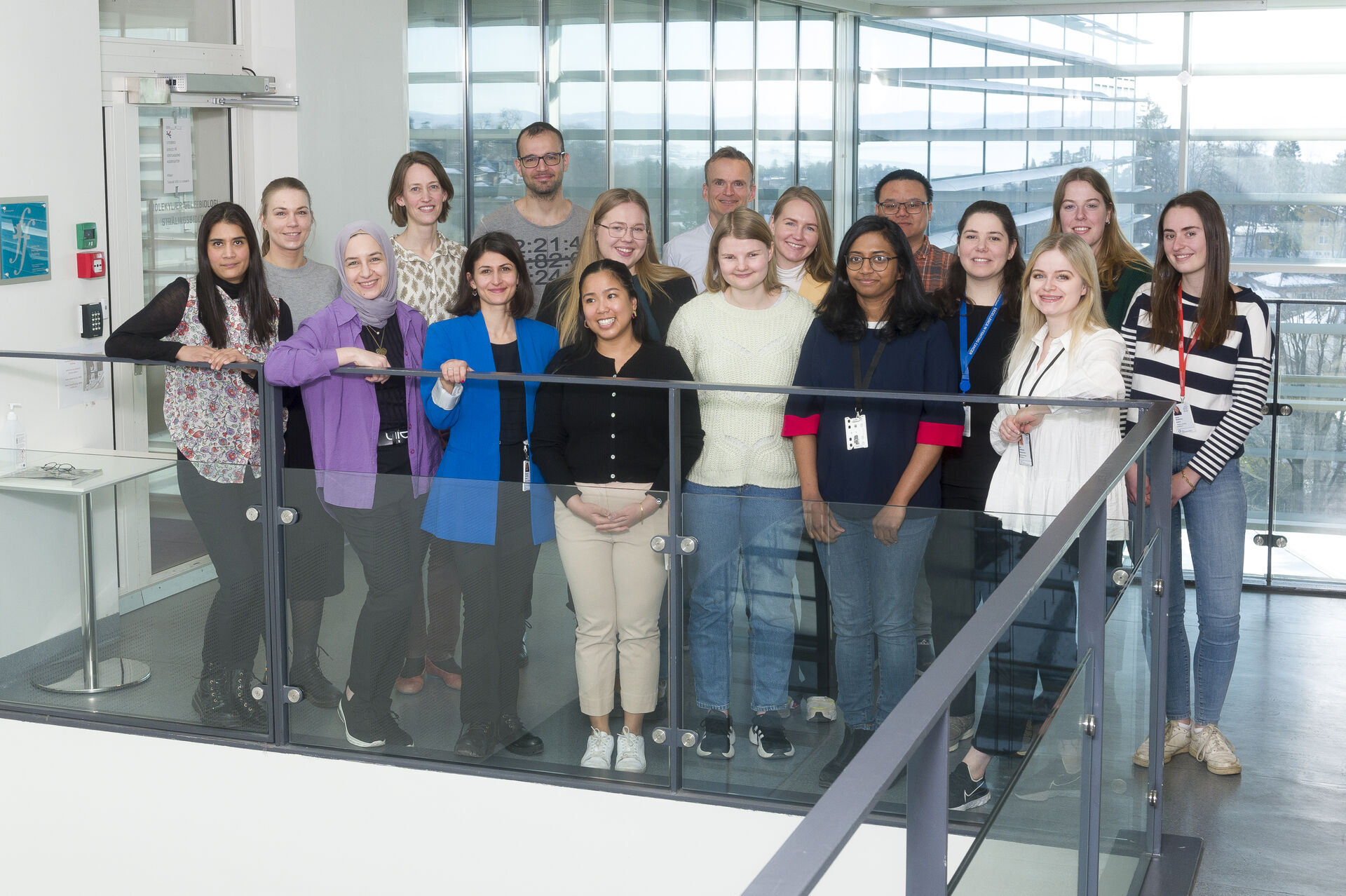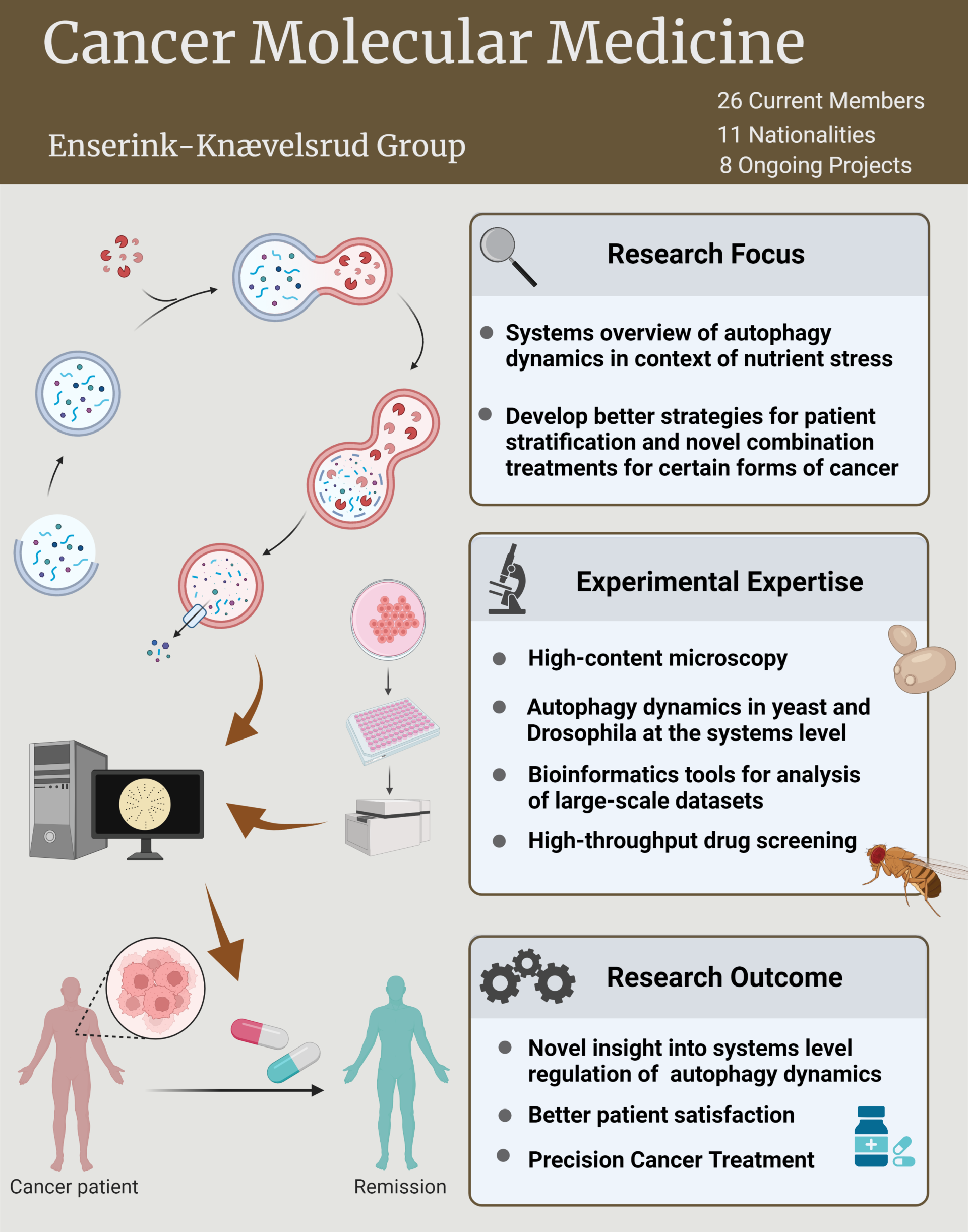One of the central themes of the group’s research is to gain insight into how cells respond to environmental cues, particularly nutrient stress. Organisms often experience periods of limiting amounts of nutrients followed by periods of abundant nutrients. Their cells respond to nutrient stress by reducing anabolic pathways while activating catabolic pathways, such as autophagy. Autophagy needs to be switched off upon nutrient availability as failure to do so results in reduced fitness of the organism. However, how organisms control autophagy dynamics at a systems level is poorly understood. The Enserink team uses budding yeast as a model while the Knævelsrud team uses the fruit fly Drosophila melanogaster, to obtain a comprehensive, systems-wide overview of the cellular pathways that control autophagy during periods of nutrient depletion and repletion. Knowledge obtained from both systems can feed into each other, creating the possibility of potent research synergy that is unique in the field.
The second theme focuses on development of novel strategies for cancer treatment. Towards this, the Enserink team uses high-content drug screens and various bioinformatics methods to identify potential novel strategies for cancer treatment. Systematic drug combination screens are designed to identify synergistic drug combinations for melanoma, breast cancer and acute myeloid leukemia. In addition, the team has developed novel bioinformatics methods to analyze the drug screening data as well as large-scale CRISPR-Cas9 screening datasets to identify potential Achilles’ heels of cancer that can be exploited for development of new cancer treatment strategies. The group aims to use the gained information to better stratify patients into high- and low-risk groups. The Knævelsrud team, under this theme focuses on nutrient signaling pathways in various forms of renal cancer with the aim of developing novel forms of treatment.

